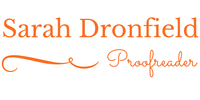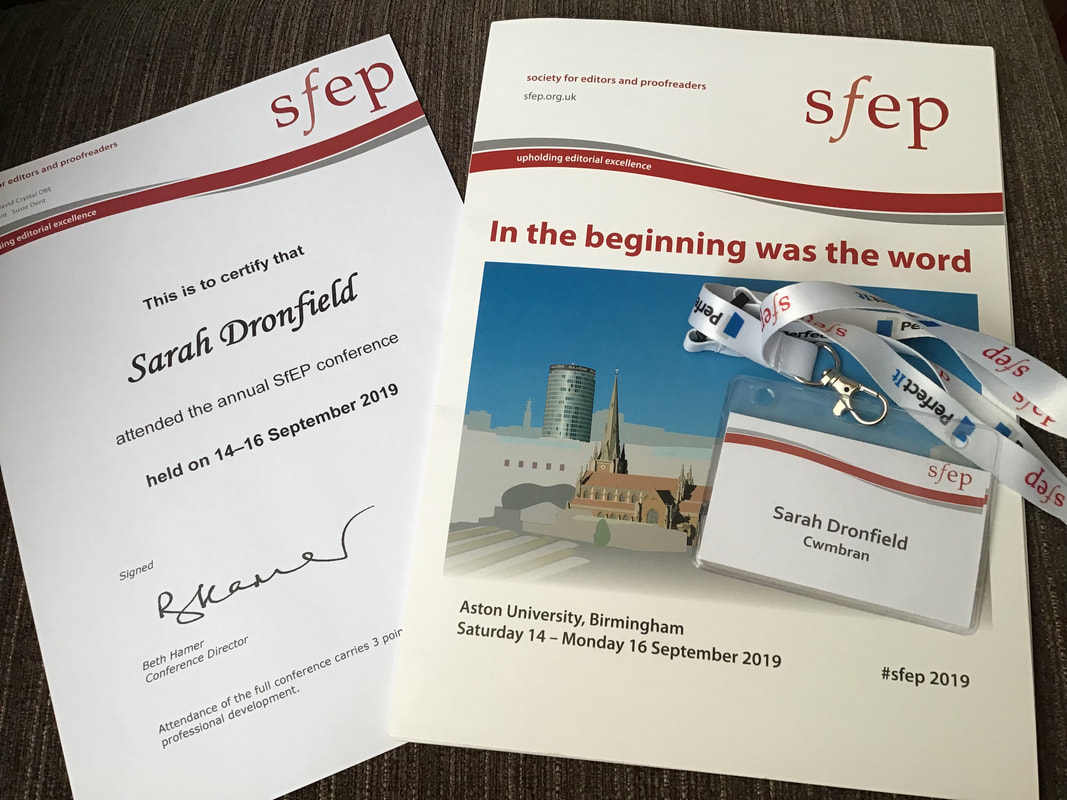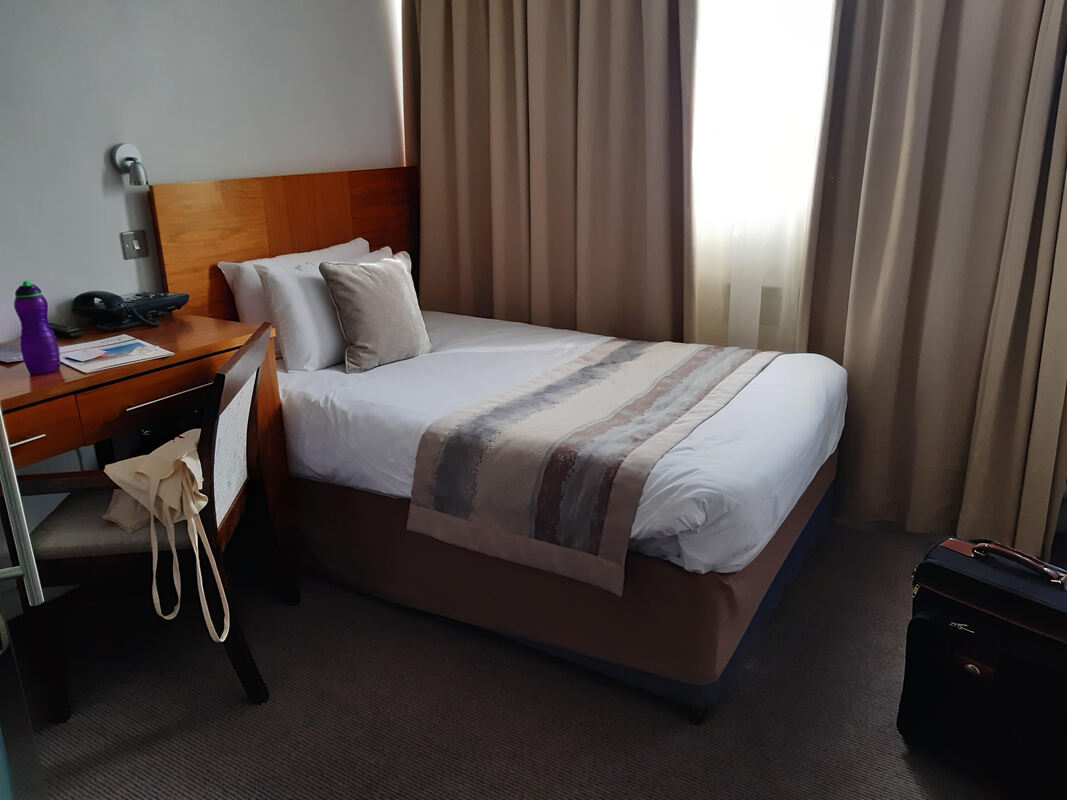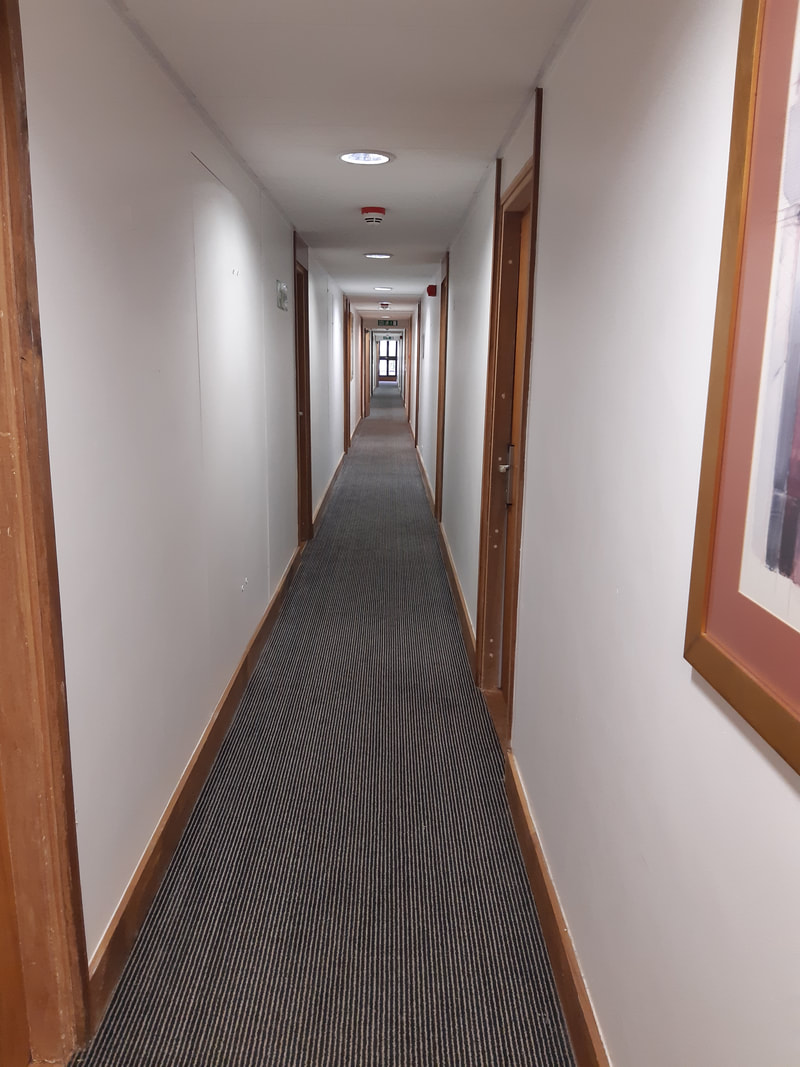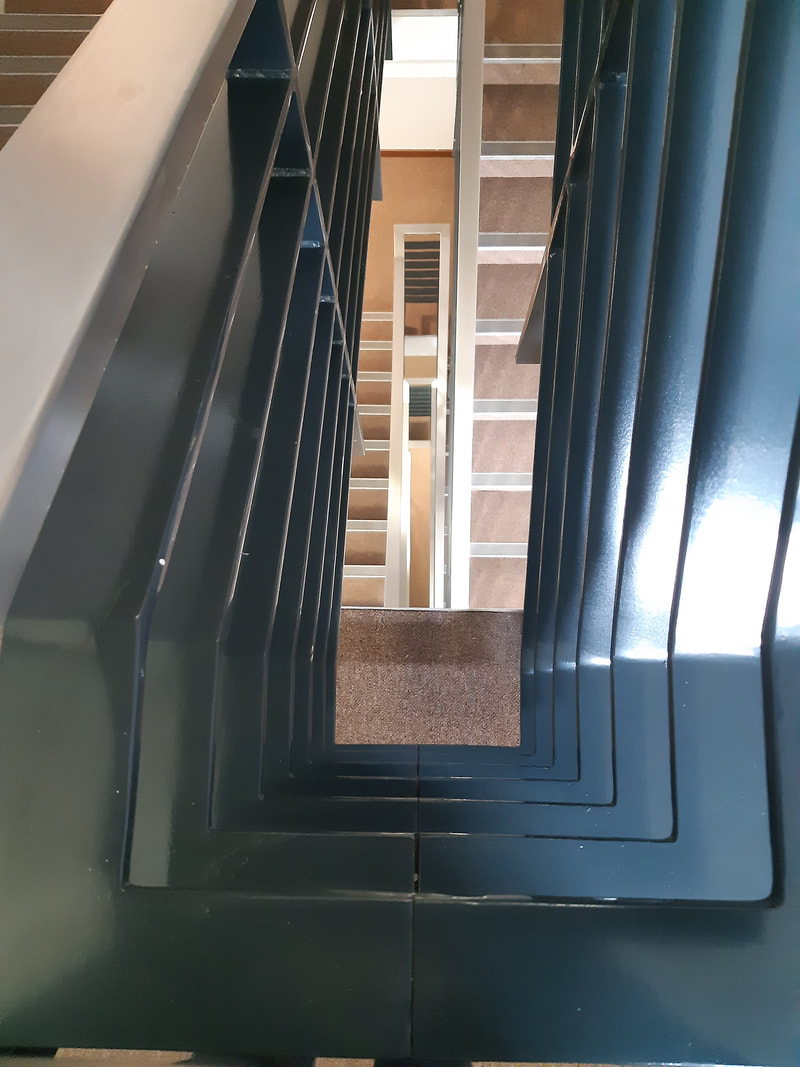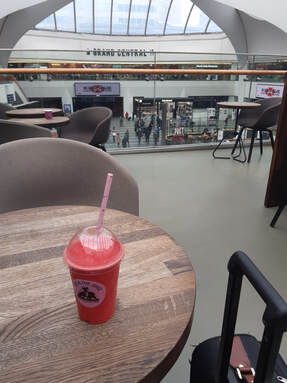|
I’d been looking forward to my second Society for Editors and Proofreaders (SfEP) conference for months. The annual conference is a fantastic opportunity for editors and proofreaders to get together to learn and to socialise. I first went in 2017, when I was ill. Fortunately, this time I was well and raring to go. The journey The beginning of my journey on Saturday was a little stressful, what with my husband trying to take me to the wrong train station; then, once he’d dropped me at the front of the correct station, I was told that I needed to walk round to the back, via the main road because the station was closed for electrification work, where I needed to catch a replacement bus to the next station to meet my train. The replacement bus was late and I only just managed to catch the train. Thankfully the rest of the journey to Birmingham went without a hitch and I even managed to find another editor to share a taxi with – thanks, Louise Bolotin – from New Street station to the conference venue at Aston University. Soon I was in my room, which was a lot smaller than some of the other rooms but still rather luxurious; I was particularly pleased to find a sachet of Galaxy hot chocolate waiting for me. Fantastic news! I had some time to rest before the AGM, where we received some excellent news: the SfEP has been granted chartership, which means that in a few months we will become the Chartered Institute of Editing and Proofreading. This doesn’t mean that we, as individuals, will become chartered editors or proofreaders (although that might be a possibility for some of us one day) but hopefully it will show the world what a valued profession this is and how much our skills and knowledge are needed. Drinks, chilli and Kevin A little later it was time for pre-dinner drinks, and I found myself chatting to Emma Darwin (author and great-great granddaughter of Charles) at the bar; she is really lovely. I also chatted with edibuddies, including Kia Thomas who I talk to a lot online, so it was great to finally see her again in person. I sat next to her at dinner too, and once the chilli-loaded meal was over (there was chilli in every main-course dish and even in the cheesecake) it was time for the quiz. Our table, team name: Kevin, won the quiz; our prize: three tubs of Cadbury’s Heroes. The long corridors and multiple flights of stairs were a welcome sight after hours of sitting and standing. Style sheets After a chilli-free cooked breakfast on Sunday morning I decided to skip the opening lecture so I could get some more rest before a busy day. It sounds like I missed a hilarious and very sweary talk by author Chris Brookmyre, but I am glad I had that rest because it was non-stop after that. First I attended a two-hour workshop on creating effective style sheets, with Ian Howe. Style sheets are essential for consistency and efficiency. We had a discussion and we all agreed on the kind of things that a style sheet should include. Some things are always on there, such as spelling and punctuation, but if you’re working on fiction you also need to include a list of characters and locations; if you’re working on an academic text you need to note how references and citations should be presented. We could have talked for longer about what can be included as the list seems to be endless (how to deal with numbers, quotations, headings, lists, abbreviations and acronyms, terminology, etc.) but Ian went on to show us some very interesting examples of the different ways editors use style sheets. One great idea that I should use came from Graham Hughes’ style sheet. Graham colour-codes items – in grey, purple or black – to denote whether the usage is not yet determined, specified in the style guide/brief, or a decision made by himself (usually based on usage in the manuscript). Something I already do, which Ian recommended, is to use PerfectIt or macros to check for consistency (or lack of) before starting work on a manuscript. More chilli, and copyright After lunch (chilli con carne) it was time for a seminar on avoiding copyright pitfalls. As Stephen Baker, the session leader, pointed out, it can be a really dull subject ‘until it hits the fan’. I’m reluctant to share the content of the seminar here because it’s so complicated and because laws vary between countries/jurisdictions and I wouldn’t want anyone to make any decisions or give advice based on what I’ve said. Suffice it to say that it behoves all editors to ensure that they are at least familiar with the basics. Here endeth the sermon. Lightning talks Next came the lightning talks, a light-hearted session in which several people get five minutes each to speak, usually about a subject close to their heart. The talk closest to my heart was the one by Sue Walton. Sue talked about the history of the Welsh language: In the beginning was the word … and in Britain that word was Welsh. I come from a non-Welsh-speaking part of Wales and so they didn’t bother to teach us Welsh when I was in school. I’m so glad that has changed now and that my son is learning the language. I love that when he points out Castell Coch from the motorway he actually sounds Welsh, unlike me. Social media social Once the afternoon sessions had finished, I went to the social media social. The whole conference is a chance to catch up with people you usually only see online, but the social media social is an opportunity to swap Twitter handles, connect on LinkedIn, etc., or to swap tips on how to network or market yourself on social media. It was also an opportunity to eat some more of the Heroes that we won in the quiz. More drinks and the gala dinner After a quick rest and a phone call home, it was time to get ready for the big event: the gala dinner. On the way from the bar to the restaurant I finally got to meet Louise Harnby. At the 2017 conference we got as far as saying hello in the corridor; this time, we hugged and had a brief conversation, mainly along the lines of I can’t believe we haven’t met properly yet! Maybe next year we’ll get to have a longer chat, Louise. At the dinner I found myself at a table with Selena Class, Hester Higton and macro king Paul Beverley. Unfortunately, I wasn’t able to chat with anyone else because the table was too big and the dining room too noisy. But we had a pleasant evening with good food and plenty of wine. We even had a glass of Prosecco to celebrate the chartership news. Also, this was the 30th SfEP conference, and Kathleen Lyle was presented with the Judith Butcher award for having attended them all. The after-dinner speaker was Rob Drummond, a linguist from Manchester Metropolitan University and, perhaps more importantly, he worked as an extra during his student days and was one of the first policemen on the scene when Trevor Jordache’s body was discovered under the patio in Brookside. Rob talked about linguistic knowledge versus linguistic pedantry. Because we are editors and proofreaders, people sometimes ask us if we get annoyed about misplaced apostrophes and spelling errors we see in the wild, and he advised us to simply respond, ‘Mate, let it go. It’s just non-standard.’ And that was a perfect end to a lovely evening. Monday morning My first session was ‘Editing and the typesetter’ with Rich Cutler, who is both an editor and typesetter and therefore in a good position to be able to advise us on copy preparation. It was reassuring to find that I am already doing most things right: cleaning up manuscripts and keeping them clutter-free, and using styles and tags correctly. One thing we should all be doing but might not be aware of is to flag unusual characters, because the client/designer may choose a font that doesn’t have them; you could, for example, highlight those characters in green and include a note in your list of instructions to the typesetter: ‘unusual characters highlighted in green’. During the coffee break I attended a meeting with some of my fellow local group coordinators (I run the South Wales/Cardiff group) and the SfEP community director, Vanessa Plaister. It was good to see them and to share experiences and ideas, as well as custard creams and Haribos (thanks, Vanessa). Within a few minutes of that meeting ending, I was discussing a suburban wife and mother’s first lesbian experience with her neighbour. This was part of a seminar on editing sex scenes in fiction, led by Maya Berger. This particular extract was well written, and we discussed what the scene told readers about the characters and how it could further the plot. The next extract was (deliberately) not well written and we talked about what constructive feedback we might give the author. As I experienced in the other sessions and workshops, it was reassuring to know that I am approaching things the right way, but it is always fun to work in groups when we are so used to working alone. And no matter how much you know already, there is always something new to learn or some new way to approach things. The busy morning left me very hungry and I stuffed myself with the delicious beef stew and apple crumble and custard, and had one last (this time non-alcoholic) drink with Kia Thomas. Sadly, I had to miss the last seminar and the closing session because I had to catch the train home. But I’m already looking forward to next year! Birmingham New Street
0 Comments
Your comment will be posted after it is approved.
Leave a Reply. |
